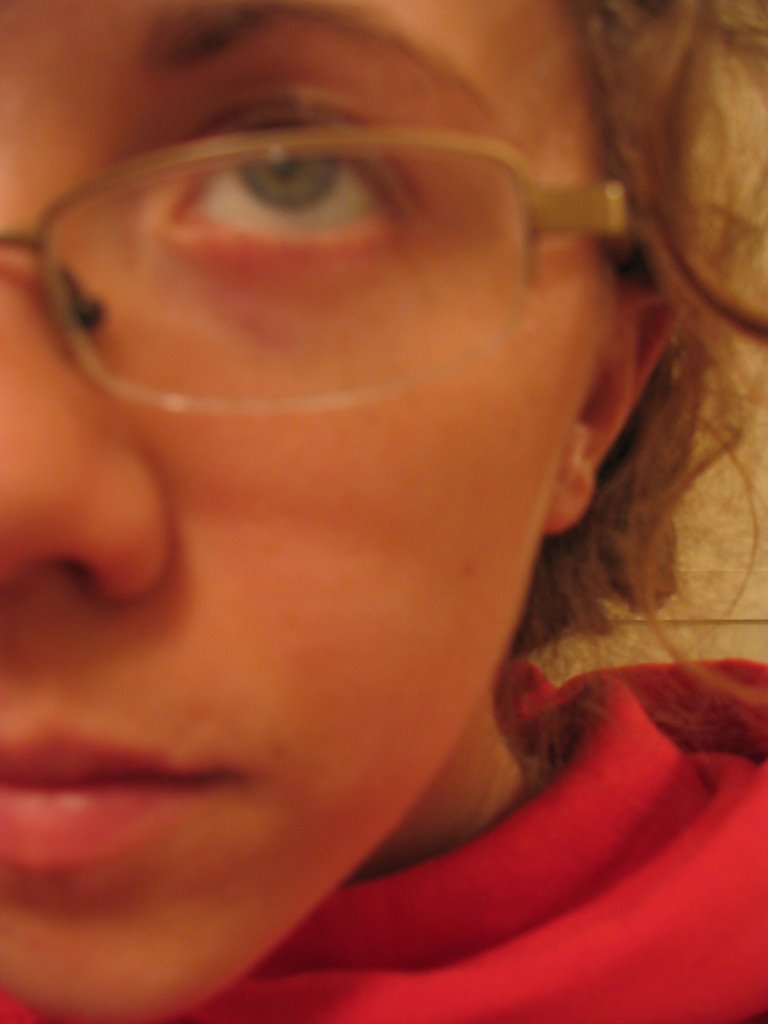Today was our first official biochemistry lecture--or, as it's called here to make it sound clinically relevant and less like a rehash of that class you took during your killer 21-credit-trying-to-get-into-med-school-junior-second-semester, "Molecular Foundations of Medicine."
There was the "two semesters of gen chem and organic chemistry and biochem--each" crammed into an hour, and then we talked about prions and prion-related diseases, which are actually pretty cool. People thought Stanley Prusiner was a total whack job when he first said, "Hey, these aren't viruses and they aren't bacteria--maybe they're just misfolded, infectious proteins." I would imagine they told him, "Stan, you're a misfolded protein." But now that guy down the hall who made fun of him when his paper was rejected hangs his head in shame every time he's reminded of those comments, and Stanley has a Nobel Prize, so ha freaking ha. Chase your dreams, kids. Don't be disillusioned.
We also had a Practice of Medicine, or "Doctoring" class, and got to watch a sample interview/physical, where we learned such gems as (I'm actually not being ironic--moi?--some of these were things I'd never even thought about, or had thought about but will likely forget when I go in for my first interview smelling of sweat and hand sanitizer and fear):
-Introduce yourself, and sit down. Studies have shown, one of the clinicians noted, that when you sit down with patients they feel like you've spent more time with them, and hence they are more satisfied with the whole experience. Also, you're not towering over them (not that my 5'4" self would be doing much towering) and even further emphasizing the power imbalance inherent in the relationship.
-Tell the patient what you're doing before you do it and as you do it. Don't lunge at people without explaining what's going on. With adults, you'll make people uncomfortable; with pediatric patients, you might get bitten.
-Listen. What a concept. Don't barrage the patient with questions. Segue to the topics you want to cover in a SMOOVE manner. If you're good at macking on people, apparently, you will likewise be good at getting histories. Please don't mix the two and mack on patients, by the way, especially if you're an OB/GYN. Because it's not just creepy, it's an ethics violation.
-Wash your hands.
-Warm your stethoscope and hands. And if you're using one, the speculum (since I'm 99.9% sure I won't be going into OB/BYN, I'll say this simply as a woman...there is nothing like a cold speculum. And not in a good way).
-Ask follow-up questions. Ask people to clarify. "I used to party..." could mean anything from getting funky with birthday cake and those paper cone hats to snorting crystal and having sex with other men. Obviously one is a risk factor for a lot of things, and the other isn't so much (OK, maybe diabetes if you eat a LOT of cake).
-Related vein: don't assume risk factors--or anything, really--based on appearances alone.
-Wash your hands.
-Be friendly. Smile. Say please a lot. This person is giving you access to their life history, their secrets, their body. Be compassionate and polite.
-Wash your hands.
Oh, yes, in histology yesterday we had our first "Joke at the Psychiatrists' expense."
"As for the people who never learn to identify anything under the microscope, we just hope they go into psychiatry or something." I wanted to say, "Really? This early you're hating on the psych folks? REALLY?" I guess everyone just pimps everyone else and I should get used to it, but come on now. It's a little early to be establishing pecking order, isn't it (I say "establishing" as if psych weren't sort of entrenched towards the bottom...but at least people TALK to them. Pay quite a bit to talk to them, in fact. Let's see any other kind of physician, even a sparkling conversationalist, who gets paid just for their words).
Subscribe to:
Post Comments (Atom)

No comments:
Post a Comment